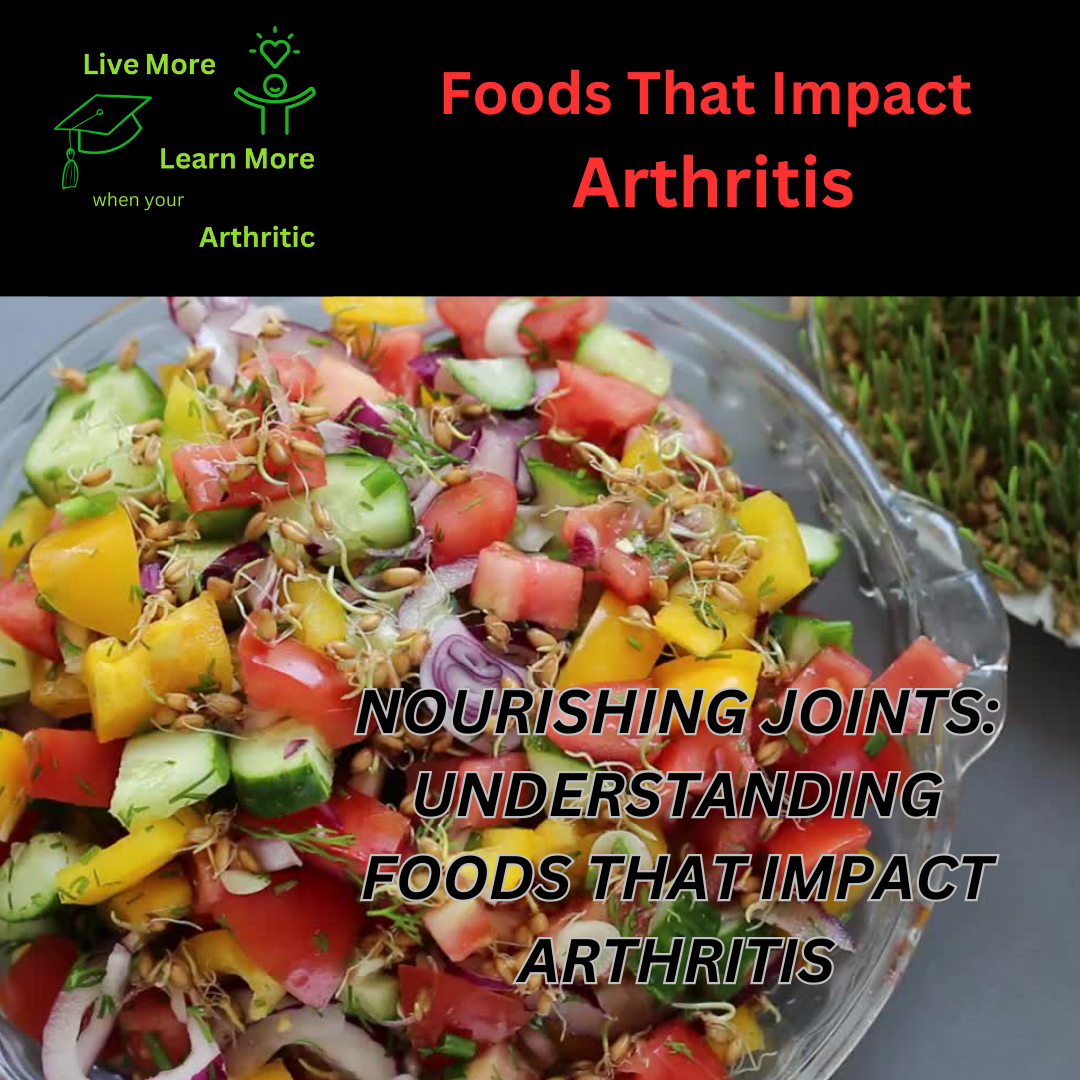
Foods That Impact Arthritis
Arthritis, a condition characterized by joint inflammation and pain, can be influenced by our dietary choices. Certain foods have been linked to exacerbating arthritis symptoms, while others can help alleviate discomfort and promote joint health. This exploration of foods that trigger arthritis will uncover the science behind dietary influences on arthritis, discuss types of trigger foods, explore preventive actions, and highlight the benefits of a balanced diet for managing arthritis and improving quality of life.
 Understanding Foods That Trigger Arthritis
Understanding Foods That Trigger Arthritis
Diet plays a significant role in the management of arthritis, with certain foods known to trigger inflammation and worsen symptoms. Let’s delve into the types of foods that are commonly associated with arthritis flare-ups and the mechanisms behind their impact on joint health.
Types of Foods That Trigger Arthritis
Processed Foods: Highly processed foods containing trans fats, refined sugars, and excessive salt can contribute to inflammation in the body, worsening arthritis symptoms. Examples include fast food, sugary snacks, and pre-packaged meals.
Saturated Fats: Foods rich in saturated fats, such as red meat, full-fat dairy products, and fried foods, can promote inflammation and contribute to joint pain in arthritis patients.
Sugar and Refined Carbohydrates: Consuming large amounts of sugar and refined carbohydrates, like white bread, pastries, and sugary beverages, can lead to spikes in blood sugar levels and inflammation, aggravating arthritis symptoms.
Nightshade Vegetables: Some individuals with arthritis may experience increased joint pain after consuming nightshade vegetables, such as tomatoes, eggplants, peppers, and potatoes. These vegetables contain alkaloids that may trigger inflammation in susceptible individuals.
Mechanisms of Food-Induced Arthritis
Certain foods can trigger arthritis symptoms through various mechanisms:
Inflammation: Processed foods, saturated fats, and sugary items promote systemic inflammation, contributing to joint inflammation and pain.
Gut Health: Poor dietary choices can disrupt gut microbiota balance, leading to increased intestinal permeability (leaky gut) and the release of inflammatory substances that affect joints.
Immune Response: Foods containing allergens or sensitivities can activate immune responses that manifest as joint inflammation and discomfort in arthritis patients.
Interconnection Between Food and Arthritis
The relationship between food and arthritis is complex and individualized:
Dietary Triggers: Certain foods may act as triggers for arthritis flare-ups in susceptible individuals, influencing the frequency and severity of symptoms.
Nutritional Impact: A well-balanced diet rich in anti-inflammatory foods, such as fruits, vegetables, whole grains, and omega-3 fatty acids, can help manage arthritis symptoms and promote joint health.
Chronic Effects of Trigger Foods on Arthritis
Consistently consuming trigger foods can lead to several chronic effects in arthritis patients:
Increased Joint Pain: Trigger foods can exacerbate inflammation and joint pain, reducing mobility and quality of life.
Systemic Inflammation: Chronic inflammation from poor dietary choices can contribute to overall health complications beyond joint discomfort.
Weight Gain: Consuming high-calorie, low-nutrient foods may lead to weight gain, placing additional stress on weight-bearing joints and worsening arthritis symptoms.
Preventive Actions and Benefits of a Balanced Diet
Adopting preventive measures through dietary modifications can positively impact arthritis management and overall well-being:
Anti-Inflammatory Diet: Focus on consuming whole foods rich in antioxidants, vitamins, and minerals to reduce inflammation and support joint health.
Hydration: Adequate hydration is essential for joint lubrication and overall health. Opt for water and herbal teas over sugary beverages.
Weight Management: Maintaining a healthy weight through diet and exercise can alleviate pressure on joints and reduce arthritis symptoms.
Supplementation: Consider incorporating supplements like omega-3 fatty acids, turmeric, and glucosamine/chondroitin for joint support, under the guidance of a healthcare provider.
Achieving a Higher Quality of Life with a Proactive Approach
Embracing a proactive approach to diet and lifestyle can significantly improve quality of life for individuals with arthritis:
Pain Management: A balanced diet can reduce inflammation and alleviate joint pain, enhancing mobility and comfort.
Improved Energy Levels: Nutrient-dense foods can boost energy levels and support overall vitality.
Enhanced Mood: Adopting a health-conscious diet can positively impact mood and emotional well-being.
Possible Complications of Poor Diet and Arthritis
Neglecting dietary considerations in arthritis management can lead to various complications:
Increased Disease Progression: Poor dietary choices can accelerate joint degeneration and worsen arthritis symptoms over time.
Comorbidities: Unhealthy eating habits may contribute to the development of other chronic conditions, such as cardiovascular disease and diabetes, which can further complicate arthritis management.
Conclusion
Understanding the impact of food on arthritis empowers individuals to make informed dietary choices that support joint health and overall well-being. By avoiding trigger foods, embracing an anti-inflammatory diet, and adopting preventive measures, individuals can optimize arthritis management, reduce symptoms, and achieve a higher quality of life. Remember, nourishing your body with wholesome foods is a fundamental step towards nurturing your joints and living well with arthritis.
- Processed Foods and Arthritis: For more information on how processed foods impact arthritis, see Healthline’s article on the worst foods for arthritis.
- Saturated Fats and Inflammation: To understand the link between saturated fats and inflammation, read Harvard Health’s explanation on the inflammatory effects of saturated fats.
- Sugar and Arthritis: Explore how sugar can affect arthritis symptoms on Arthritis Foundation’s page on sugar and arthritis.
- Nightshade Vegetables and Arthritis: For insights into nightshade vegetables and arthritis, visit Verywell Health’s article on nightshades and arthritis.
- Gut Health and Arthritis: Learn more about the gut-joint connection in arthritis from Arthritis Foundation’s guide to gut health and arthritis.
- Anti-Inflammatory Diet: For detailed guidelines on anti-inflammatory diets, refer to Mayo Clinic’s overview of anti-inflammatory eating.
- Weight Management and Arthritis: Understand the importance of weight management in arthritis on Johns Hopkins Medicine’s article on weight and arthritis.
- Hydration and Joint Health: Find out how hydration affects joints from WebMD’s discussion on hydration and joint health.
These references provide comprehensive insights into the relationship between diet and arthritis, helping individuals make informed choices for better joint health.
